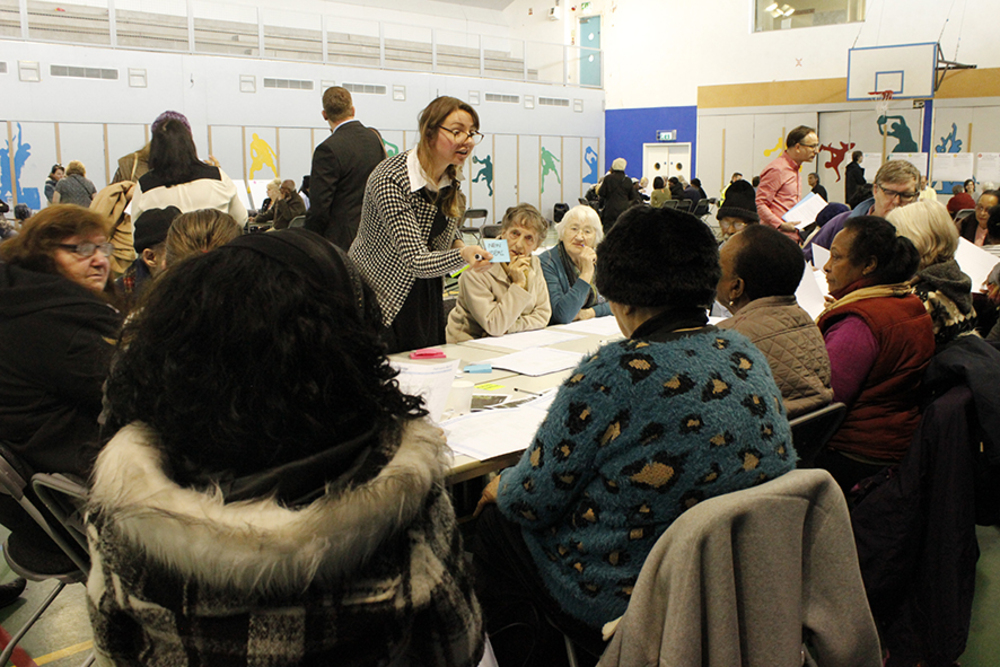Participatory Design/Action Planning
Manchester Age-Friendly Neighbourhoods (MAFN) was a practice-led research programme that aimed to address the barriers that people face in their daily lives and providing more ways for people to contribute to their communities. It was based on the World Health Organisation ‘age-friendly cities’ model, which calls for policy-makers, practitioners and older residents to come together in defining and addressing the needs and aspirations of specific communities. Over four years, we help develop and support age-friendly neighbourhood partnership across four areas of Manchester; Burnage, Hulme and Moss Side, Miles Platting and Moston.
Developing an ‘Action Plan
Developed through a series of participatory methodologies in collaboration with local residents and institutional partners, we helped develop action plans in each neighbourhood. These were a spatial representation of older people’s lived experiences, providing both robust evidence for action and a catalogue of ideas developed by the community. The action plan consists of spatial census data, urban design analysis, action planning workshops and neighbourhood survey data, informed by 4800 interactions with local people and other stakeholders.
Funding Small Projects
Each partnership was provided with a resident investment fund to support the development of small projects (usually less than £2000), which could be used to enact their vision of an age-friendly community. These projects were developed by local residents, with projects supported, reviewed and agreed by a resident-led board in each area. Over £300,000 of investments were distribute to 110 community projects over the course of the programme.
Creating new relationships between organisations and older people
The purpose of a partnership approach is to enable new relationships and connections to occur, allowing individuals to affect each other in ways not currently possible. The aim is to generate systemic change, in which new relationships between actors are able to change how services are created and delivered.





